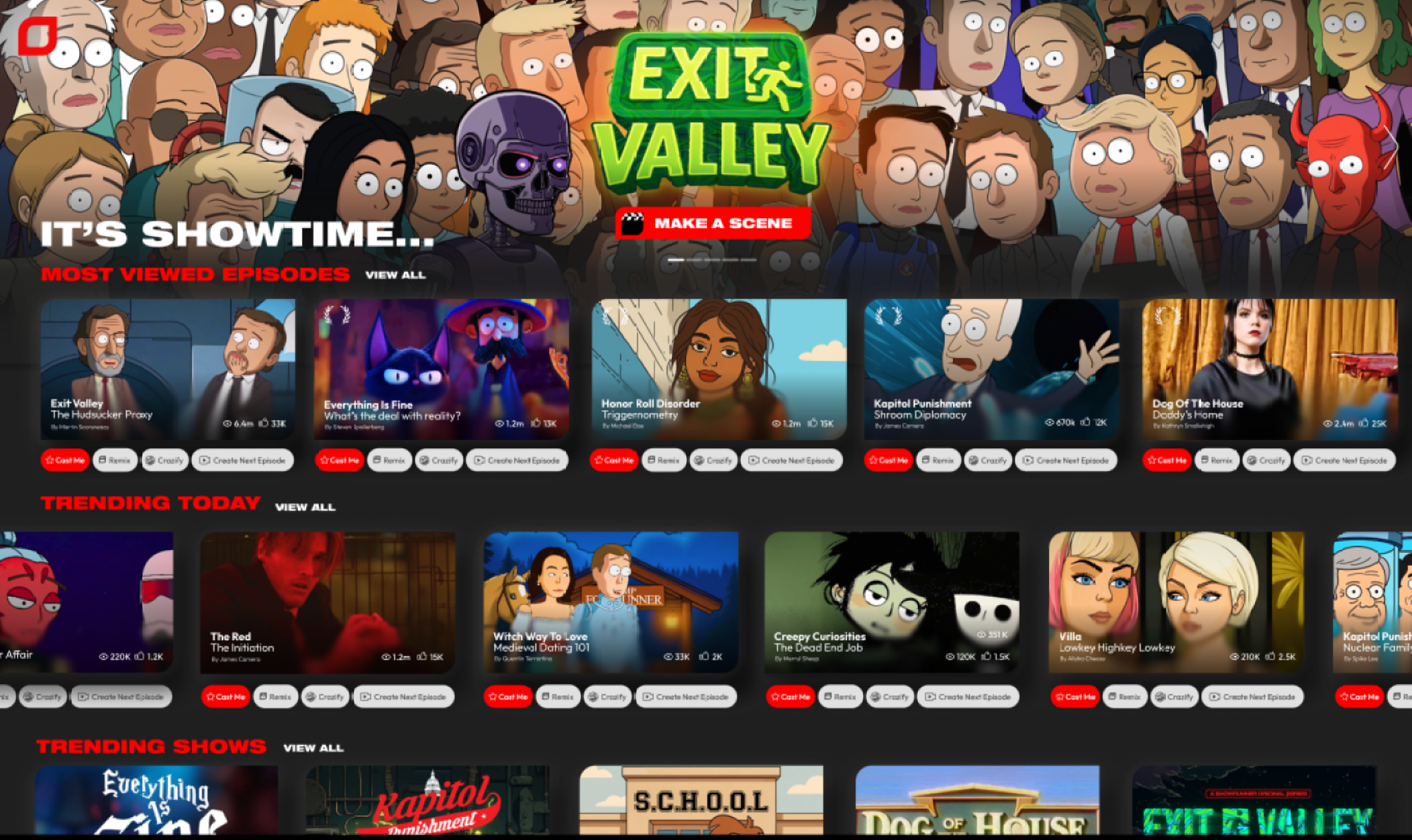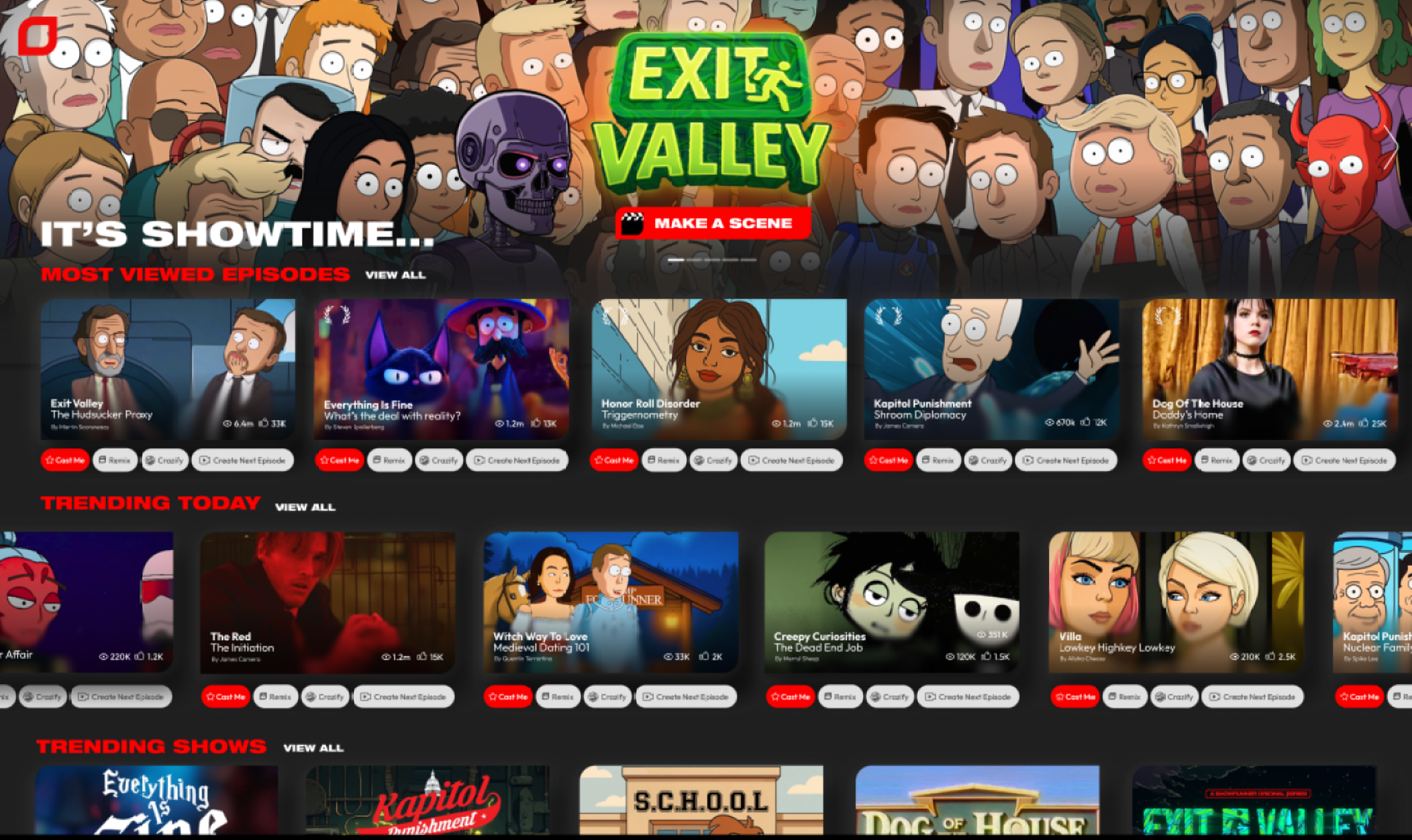
Amazon has invested an undisclosed amount in Fable Studio, the San Francisco startup behind Showrunner, a new streaming platform that lets users create their own animated TV episodes using artificial intelligence (AI).
The investment from Amazon’s Alexa Fund comes as Showrunner launches publicly this week. Users can type simple text prompts to generate animated scenes or full episodes, either from scratch or by building on existing story worlds.
“Hollywood streaming services are about to become two-way entertainment,” said Edward Saatchi, Fable’s CEO and co-founder. “Audiences watching a season of a show [and] loving it will now be able to make new episodes with a few words.”
Showrunner operates on a credit-based model, charging creators $10 to $20 monthly for the ability to generate hundreds of TV scenes. Watching content remains free for all users.
The platform launches with two original shows. “Exit Valley” satirizes Silicon Valley tech leaders like Elon Musk and Sam Altman in a Family Guy style. “Everything Is Fine” follows a married couple transported to an alternate reality after a fight at Ikea.


Source: Fable
Fable gained attention last year by creating viral South Park episodes using AI. Those videos, made without permission from the original creators, received over 80 million views and demonstrated public appetite for AI-generated content.
The company’s SHOW-2 model powers Showrunner’s animation capabilities. Saatchi said the technology works best for episodic content like sitcoms and police procedurals rather than complex story arcs.
“Today AI can’t sustain a story beyond one episode,” Saatchi admitted. “What AI is strongest at is deeply episodic shows with characters largely resetting every episode.”
Fable is pursuing partnerships with major studios, including Disney, to license popular characters. Saatchi envisions a future where fans could create unlimited new scenes with beloved characters like Buzz and Woody from Toy Story.
“The ‘Toy Story of AI’ isn’t just going to be a cheap ‘Toy Story,'” Saatchi explained. “It would be playable, with millions of new scenes.”
The startup has built copyright protections into its system to prevent unauthorized use of existing intellectual property. Users can also earn revenue when others build on their original creations, receiving approximately 40% of the credits spent on their content.
Amazon’s investment signals growing confidence in AI-native entertainment platforms that blend traditional media with interactive features. The Alexa Fund focuses on voice technology and artificial intelligence applications.
Showrunner ran a closed alpha test with 10,000 users before its public launch. The platform now has a waitlist exceeding 100,000 users interested in creating their own AI-generated content.
Even with Amazon’s backing, Saatchi admits the concept might fail. “Maybe nobody wants this and it won’t work,” he said.
The 15-employee company previously raised funding from Day One Ventures, 8VC, and Greycroft. Saatchi co-founded Oculus Story Studios before starting Fable in 2019.






















